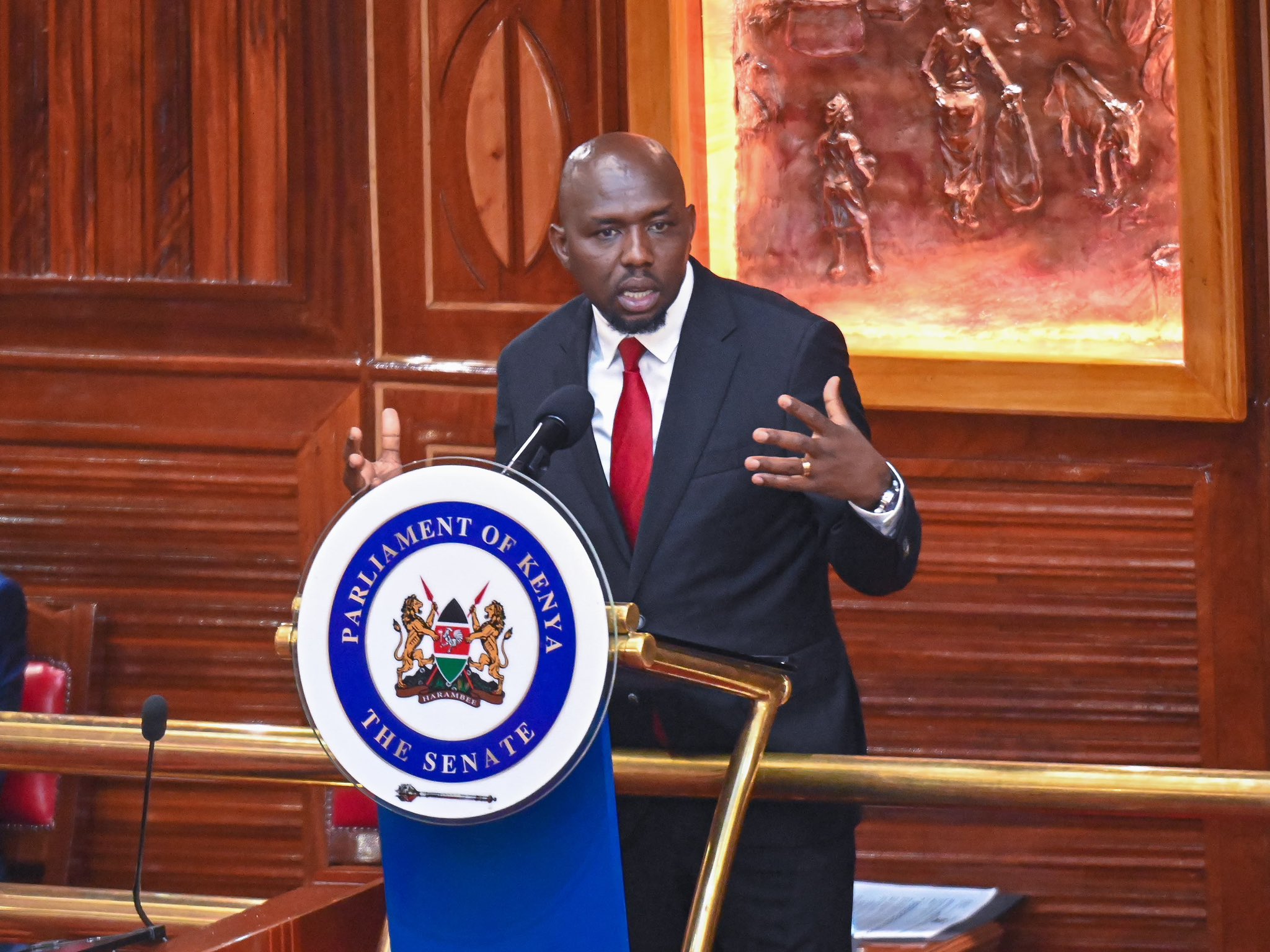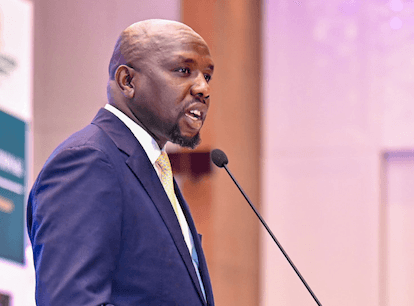
Interior and National Administration Cabinet Secretary Kipchumba Murkomen appeared before the Senate Plenary on Wednesday to respond to questions regarding security and national administration.
Murkomen underscored the need for continued investment in infrastructure as part of efforts to strengthen the country’s security framework.
He highlighted outcomes from the Jukwaa la Usalama engagements held in all 47 counties, noting that the forums have enhanced collaboration among security agencies, local administrators, and citizens, thereby helping to address issues at the grassroots level.
The CS cited progress under the ongoing Operation Maliza Uhalifu (OMU) in Kerio Valley, Samburu, Laikipia, Baringo, Elgeyo Marakwet, and parts of Meru. According to him, the operation has enabled the reopening of trading centres and the resumption of normal learning in previously affected areas.
Murkomen urged Parliament to allocate adequate resources to facilitate the construction of security roads, improvement of police housing, and acquisition of modern communication systems to enhance operations in remote and banditry-prone regions.
“Banditry will not be defeated through guns and arrests alone but through the development of infrastructure such as roads and enhanced security equipment,” Murkomen said.
He added that the government’s long-term goal is to ensure that all Kenyans, regardless of location, enjoy equal access to safety and public services.
“Lasting peace comes when security and development move together. Our investment in infrastructure is not just about security; it is about restoring dignity and opportunity to communities that have long been isolated,” he said.
Murkomen reaffirmed that, with Parliament’s support, the Ministry would continue to modernise the security sector and invest in systems that promote peace, stability, and national unity.
He told senators that the government remains committed to intelligence-led operations, which he said have helped restore calm in banditry-affected regions and strengthen public safety.
“Guided by insights from Jukwaa la Usalama, we continue to implement reforms, including fast-tracking the modernisation of the National Police Service, to enhance institutional capacity, efficiency, and responsiveness,” he said.
The CS maintained that the Ministry upholds transparency and accountability through parliamentary oversight, which he described as essential to sustaining national security.
Murkomen also expressed concern over growing insecurity linked to criminal infiltration within the boda boda sector, citing rising cases of violence and lawlessness in Nairobi, Western, and Nyanza regions.
“One of the emerging security concerns is the violence associated with boda boda operators, particularly incidents involving the torching of vehicles after road accidents,” he said.
He said the government has adopted a multi-agency approach to restore discipline and accountability in the sector, describing it as a critical part of Kenya’s transport economy.
“In all our actions and undertakings, fidelity to the Constitution remains our guiding principle,” Murkomen said.
He added that while the country remains largely stable, sporadic security challenges persist in some areas, including banditry, land disputes, and resource-based conflicts.



















